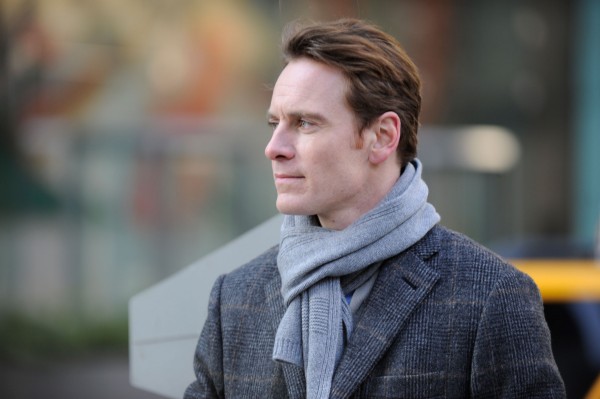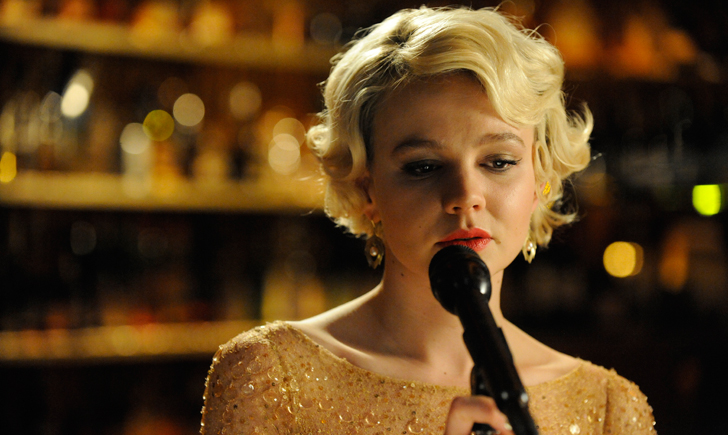|
Brandon (Michael Fassbender) is a man addicted to sex.
Living
alone in his New York apartment, his life is entirely circular. He
meets with
hookers, women on the Internet, women in bars and then goes to work in
his
office, where his computer is also littered with pornography. However,
the
careful order of his life is disrupted when his sister Sissy (Carey
Mulligan)
comes to stay with him. He has tried to ignore all her messages but she
lets
herself into his apartment uninvited. She is extremely messy and also
finds
company with Brandon's sleazy boss David (James Badge Dale), which
upsets him
too. The unspoken past between the siblings adds further damage and
tension to
their relationship. Brandon must decide whether he is going to continue
with
his own lifestyle of no commitment or make more effort to help his
sister.

When I went to see Shame what
surprised me was the number of middle-aged women watching the film in
the
audience. On paper Steve McQueen's film sounds like a blokes movie. The
title
'Shame' is said to be a reference to the feeling a man experiences once
he has
ejaculated. Yet the subject of sex here is not for casual exploitation.
McQueen
is too intelligent for that. He is a trained visual artist and a
director who
has already challenged us with films like Hunger
(2008). Everything in this film, including the sex, has purpose and
intention.
This is courtesy of the director's unique formal properties and
composition
that build a world of stasis, followed by an unwilling removal from
that safety
zone. Brandon's apartment and office are both filmed with white,
sterile tones
and large panes of glass. These are the cold, physical barriers that
disconnect
him from sustainable human connections. He is a character who is not
interested
in making long-term relationships with women but is content with brief
sexual
encounters and fleeting moments of pleasure. His cyclical nature is
reflected
in the opening scenes as he walks past the same still shot naked, the
steady
framing showing his stability and control. Outdoors, he is much the
same
because he wears one grey coat for most of the film, showing his
repression and
unchanging ways, but perhaps also an attempt to mask his shame too. His
intensity is both an attraction and detriment towards women. His
unflinching
gazes makes a girl on a train deeply uncomfortable but there is also a
very
funny scene in a bar where he and his boss meet a group of women but
only he
succeeds. After trying and saying absolutely everything, his boss David
fails
because he lacks Brandon's control and self-assurance in knowing
exactly what
he wants and finding people who match that desire. Fassbender, unlucky
to not
be nominated for an Oscar, is astonishing in the haunting and intense
qualities
he gives this character, followed by savage outbursts of anger to
counter his
repression.

Sissy is Brandon's polar opposite and provides the
perfect
contrast to the controlled and isolated lifestyle. Mulligan in her
brief career
has proven to be an actress of great emotion and innocence. She is one
of the
most promising young talents but we've never seen Carey Mulligan like
this
before. She gives us something unique to her personality: flamboyance.
Due to her
entirely erratic nature Sissy is completely disruptive to Brandon's
structure. Inviting
herself in unannounced, she has a bath and plays records at full blast,
drinks
straight from a carton out of the fridge and becomes blindly entangled
with Brandon's
boss. These details build a picture of someone who is subconsciously
disruptive
of other people's spaces, which is a lot like Brandon, only in a
different way.
Her character is not a bad person, just one who has the desire to be
noticed in
this dynamic city. The most poignant representation of this is a
classic moment
in cinema where Mulligan, who sang live no less, provides a leisurely
but
soulful rendition of 'New York, New York', emphasising her character's
desire
to adapt. As with Brandon, Sissy is defined by her costume too. There's
a great
two-shot in a train station photographing the pair of them together. We
see her
clothes, a leopard print coat and a bright red hat, juxtaposed against
his dark,
gloomy outfit. That one shot perfectly reflects what contrasting
characters
they are. A gutting climatic scene further shows this contrast in
colour but under
the most dramatic and powerful circumstances. Smartly, as she disrupts
Brandon's
life the formal qualities change as well. When she brings David to the
apartment McQueen switches to a handheld camera, and makes the framing
tighter
so that the action is intensified and shows that Brandon no longer has
control
of his whole life. Countering this is a wonderful sequence where
Fassbender is
photographed running down the block in a single tracking shot. It looks
beautiful but also servers to restore stability to his character. What
amounts
from these formal techniques is a film that has to be read because it
is subtle
and beautifully understated, visualising its characters with balance as
flawed
human beings. The film is marred only by a few extra endings but when
the last
one comes it is not cheap or overly ambiguous, just perfect. And who
can argue
with that?
|